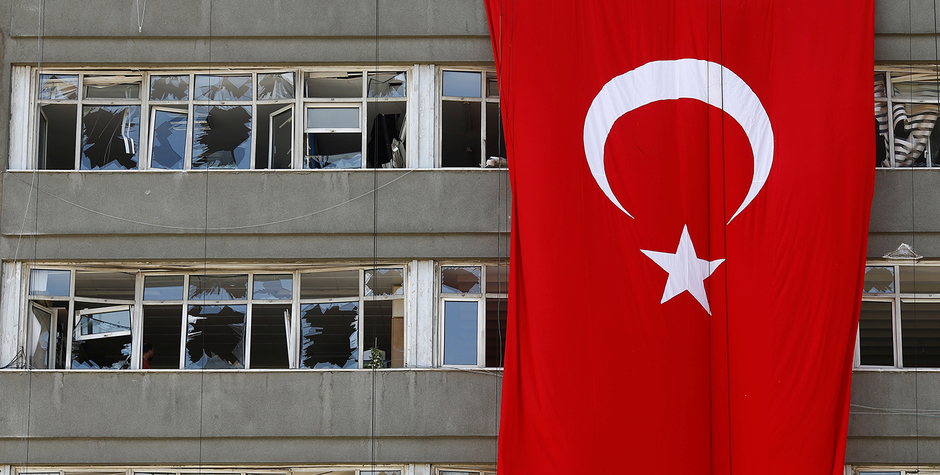The Turkish Coup: Democracy, Autocracy and the rising specter of Terror?
Whatever the outcome of Turkey’s recent failed coup, this country’s shambolic reputation is likely to remain haunted for the foreseeable future.
Turkey’s descent into darkness and instability, a situation that has been bad and is only likely to get increasingly worse, has implications for the United States, NATO, Israel and Western Europe.
Turkey’s tourism sector and much of the economy is in free-fall. Its security situation amidst a wave of terrorism that reflects increased activity by Islamic State sympathizers and Kurdish nationalist opponents is reflected in the decline in value of Turkey’s currency. And this deterioration is compounded by virtue of the fact that many believe that President Recep Tayyip Erdoğan sufferers from delusions of grandeur that are intensified by mounting paranoia.
As a consequence of President Erdoğan’s pursuit of limitless power, Turkey’s government has seized newspapers, imprisoned opponents and built palaces at the rate of an aspiring caliph. These sultanic maladies are compounded by corruption and alleged money laundering by members of Erdoğan’s family who have allegedly profited from the sale of black-market oil purchased from ISIS.
More likely than not, Turkey’s latest failed coup, an event that has resulted in the detention of around 6,000 Turkish Army members and judiciary suspects, will further President Erdoğan’s paranoia. According to Professor Dani Rodrik of Harvard University, the Turkish government has succumbed to the temptation to fabricate evidence against its opponents and this tendency has resulted in numerous miscarriages of justice since 2003. Injustice has culminated in the jailing of more journalists in Turkey than in China and Iran combined. In many cases—implicating journalists and members of the military—the “incriminating evidence” consists simply of forged documents.
Although the United States has long viewed its alliance with Turkey as one of significant strategic importance, President Erdoğan and the members of his political party, the AKP, appear to have capitulated to Islamic authoritarianism as their preferred form of government. This decision, which contributed to instability, presents a clear and present danger to U.S.-Turkish relations. This danger threatens the U.S.-led fight to quell and defeat Islamic terrorism, an effort that originates from within and without the Islamic State and elsewhere, and which includes U.S. and Israeli efforts to deal with Hamas. Given this backdrop, Turkey ought to be viewed as an unstable political and military partner whose current leadership has ideations of becoming the singular global Islamist leader instead of the secular and free democracy it once was. The United States, NATO, Western Europe and Israel should take note of this ominous development.
In the face of such menacing storm clouds, it is doubtful that anyone in the West should trust Turkey in the foreseeable future.
To learn more about Turkey’s history and geopolitical role in the Middle East and around the world, visit the M.G. Robertson Centre for Law and Public Policy.
